Nursing Practice and Teenage Depression: An Evidence-Based Approach
VerifiedAdded on 2023/02/02
|15
|1569
|63
Presentation
AI Summary
This presentation focuses on evidence-based nursing practices related to teenage depression. It begins with an introduction to evidence-based practice (EBP) in nursing, emphasizing its importance in providing optimal patient care and highlights the significance of conducting evidence-based projects. The presentation then discusses the Johns Hopkins Nursing Evidence-based Practice Model as a framework for addressing health-related concerns, including the use of the PICO method for research. The area of interest, teenage depression, is identified, and the reasons for selecting this track are explained, including changing lifestyles and societal pressures. The presentation addresses the relationship between teenage depression and primary health services, the role of nursing practices, and the identification of common causes and issues. Recommendations for intervention and their effects are provided, including the importance of regular screening and awareness programs. The presentation also identifies essential elements from the AACN, such as health policy and inter-professional collaboration. Finally, the presentation concludes by reiterating the importance of EBP in nursing and the need for community efforts to address teenage depression, providing relevant references to support the information presented.
1 out of 15

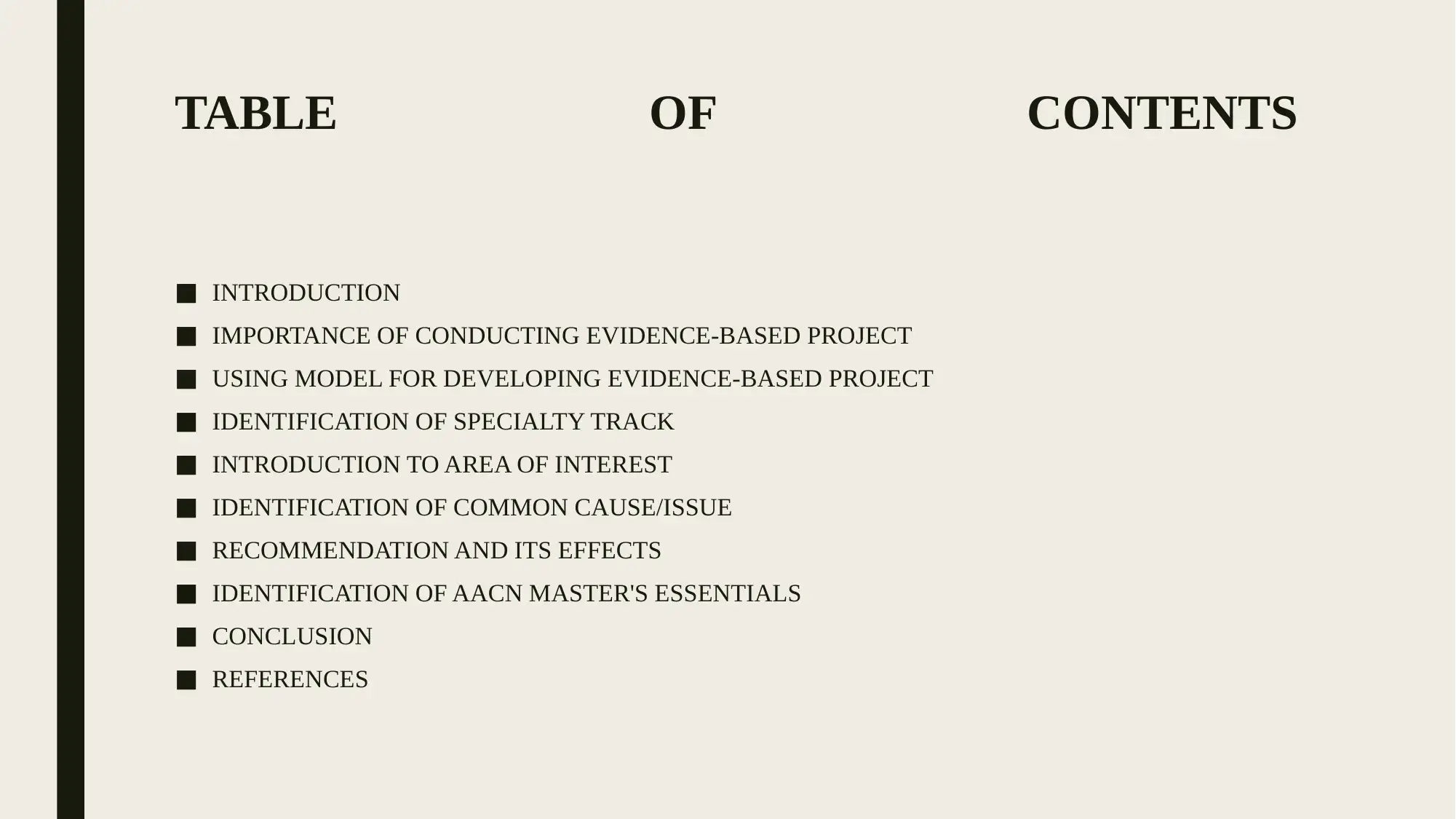
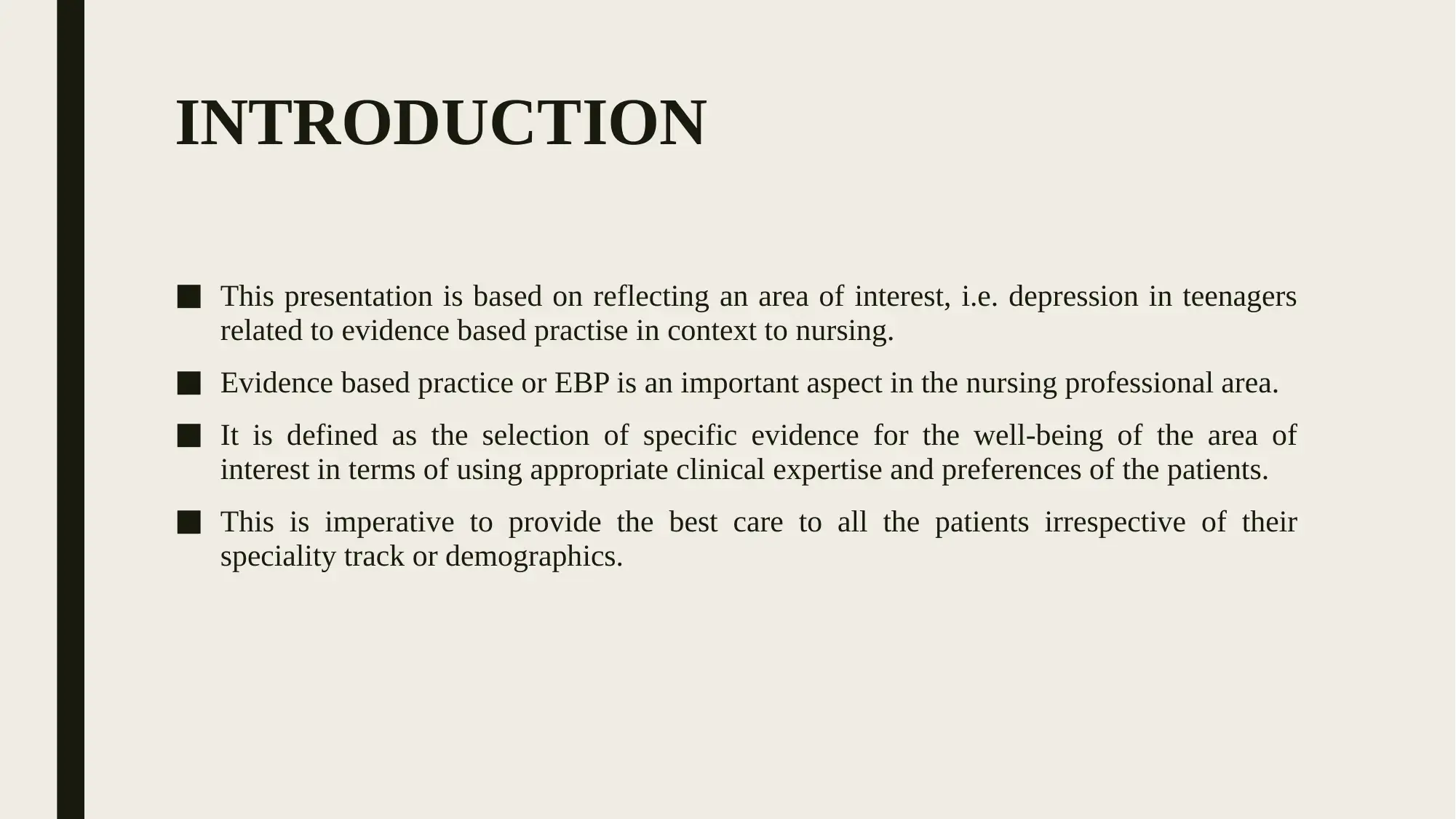

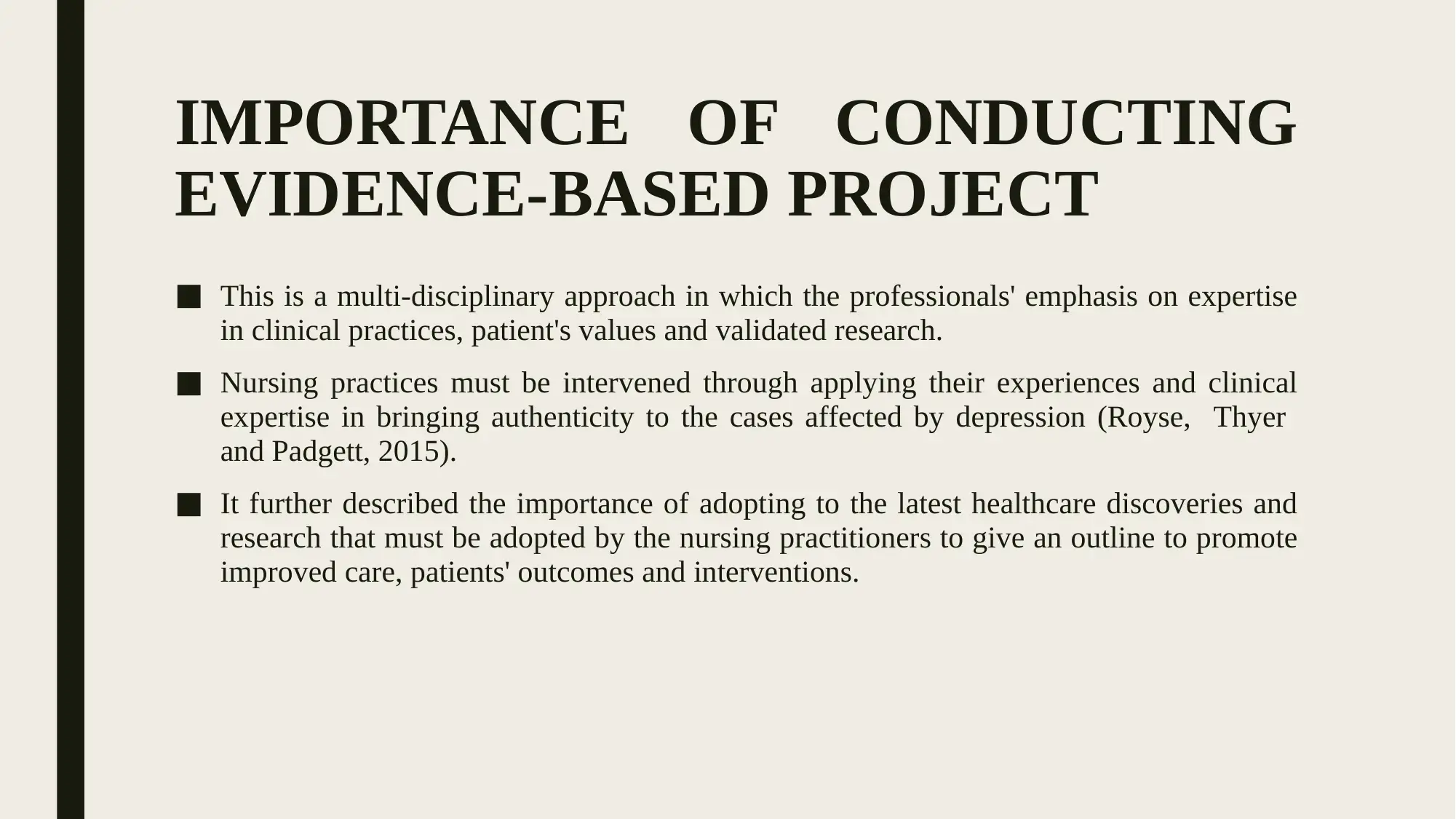
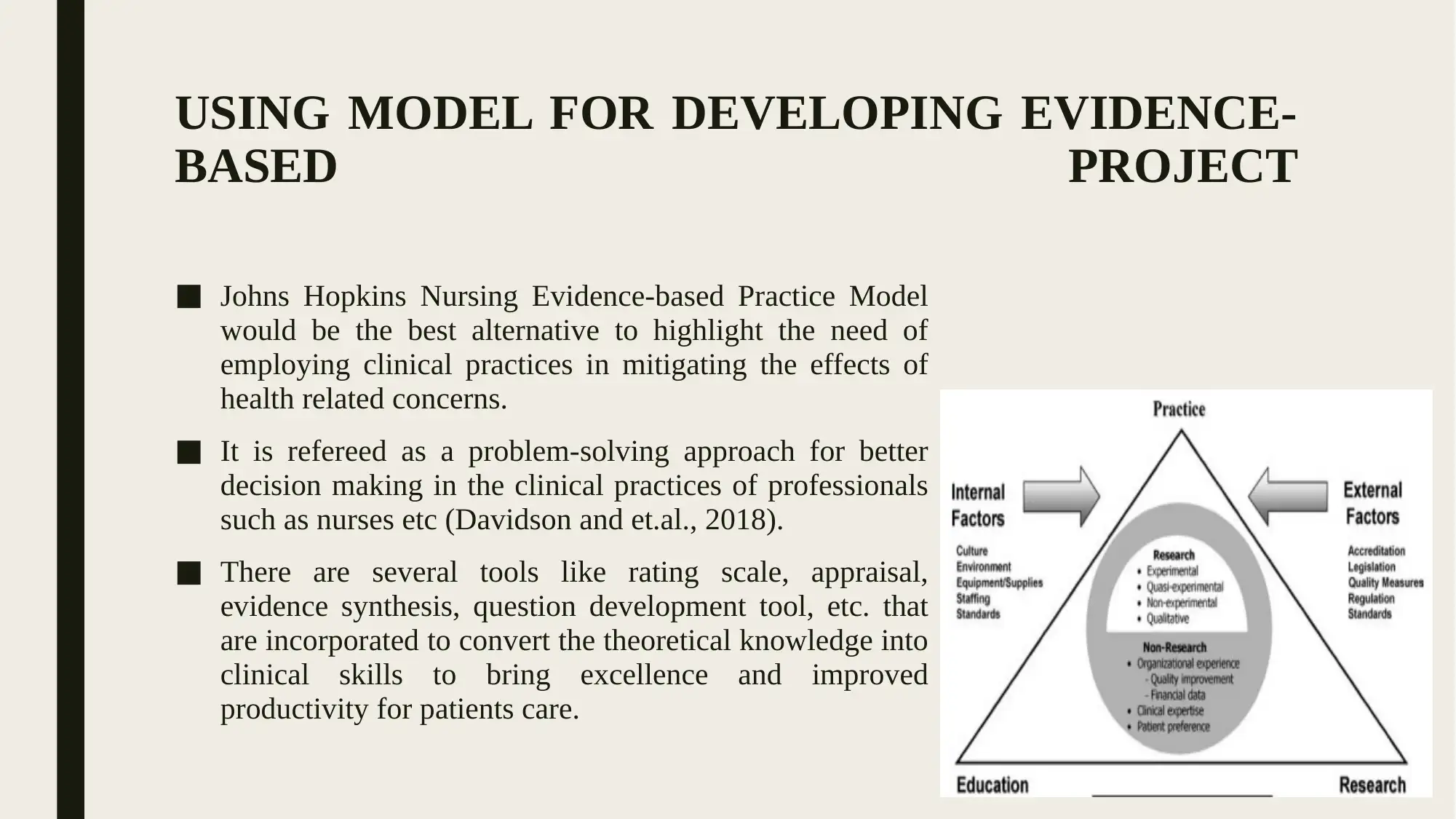
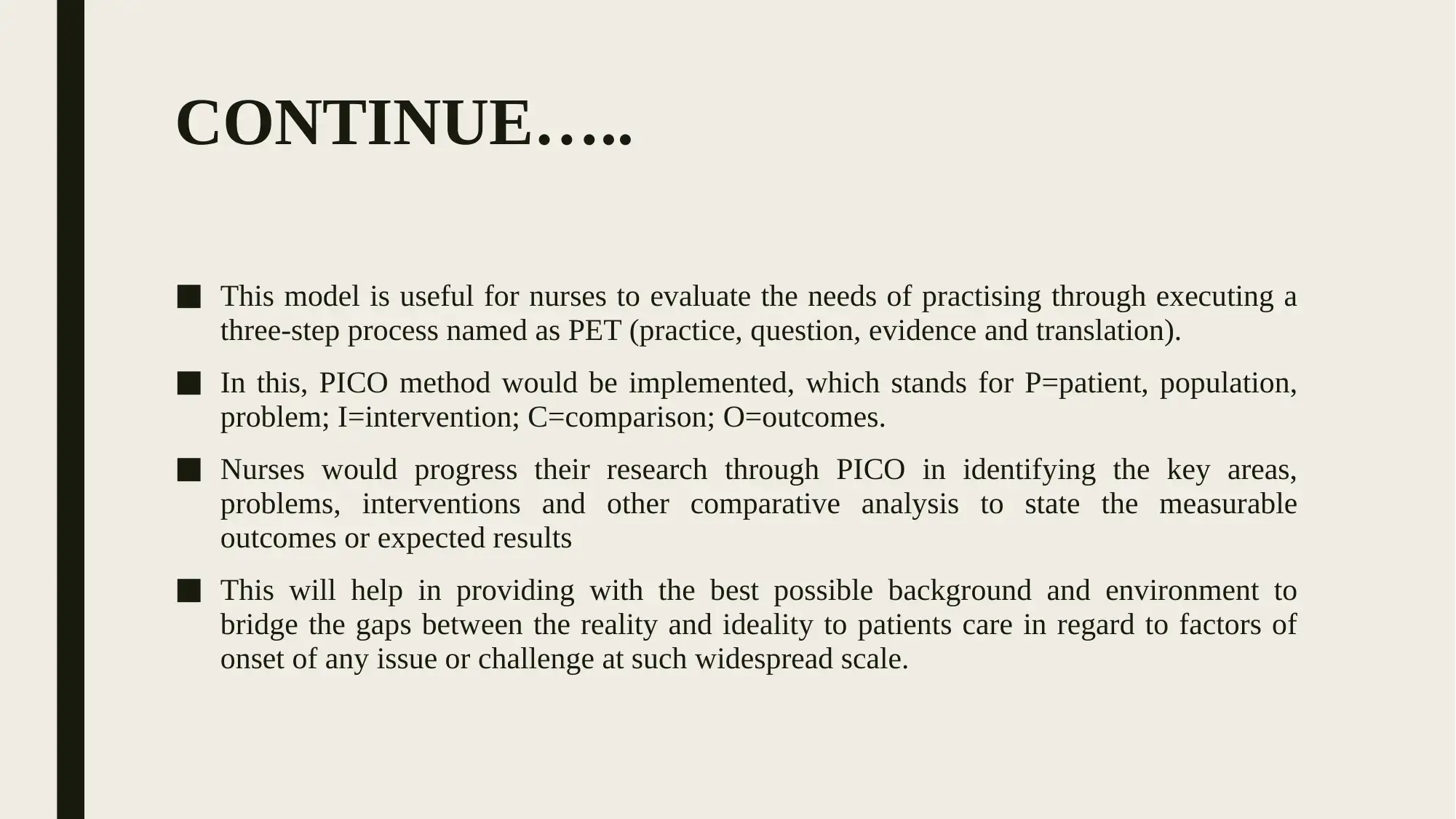
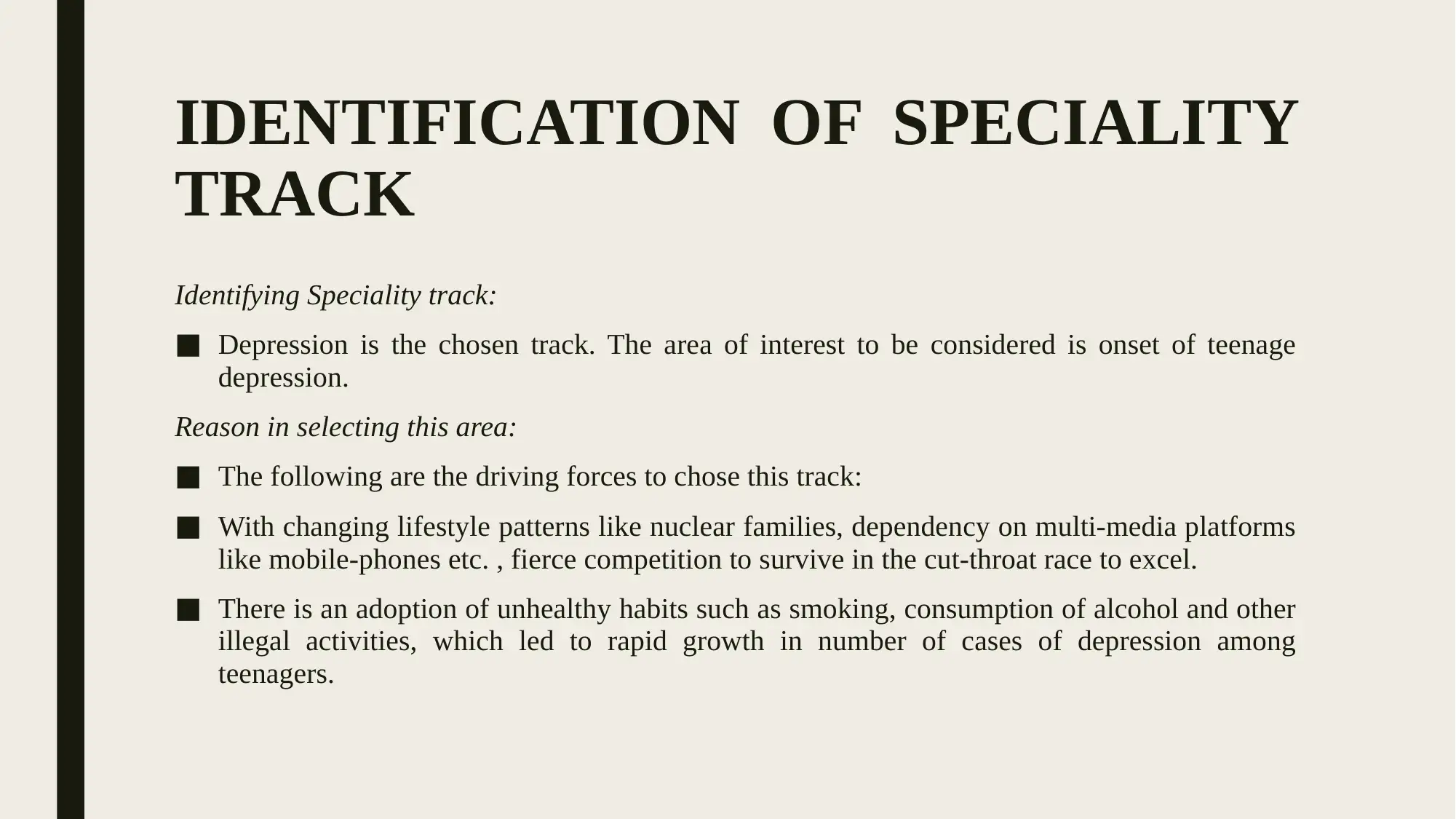
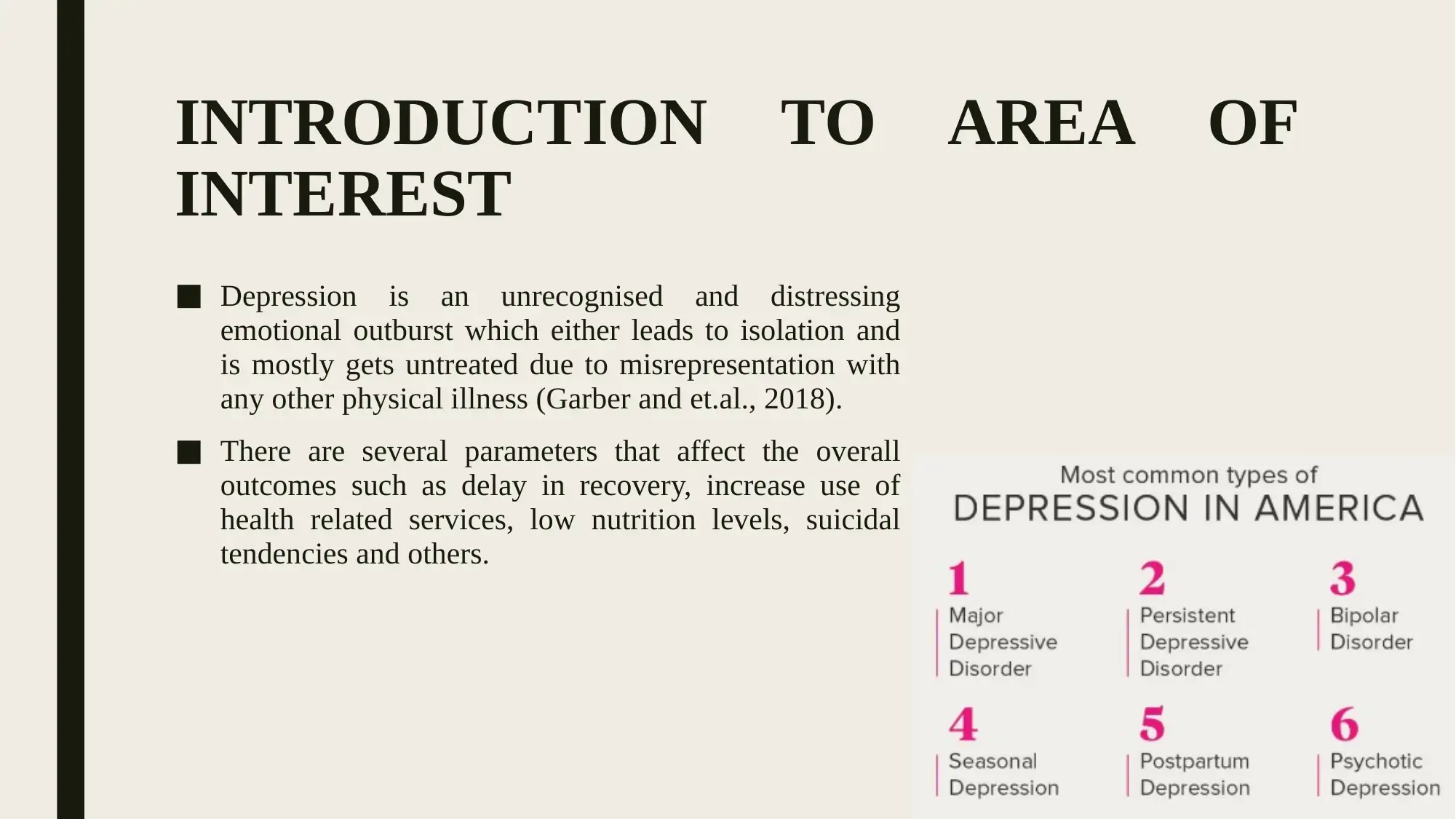
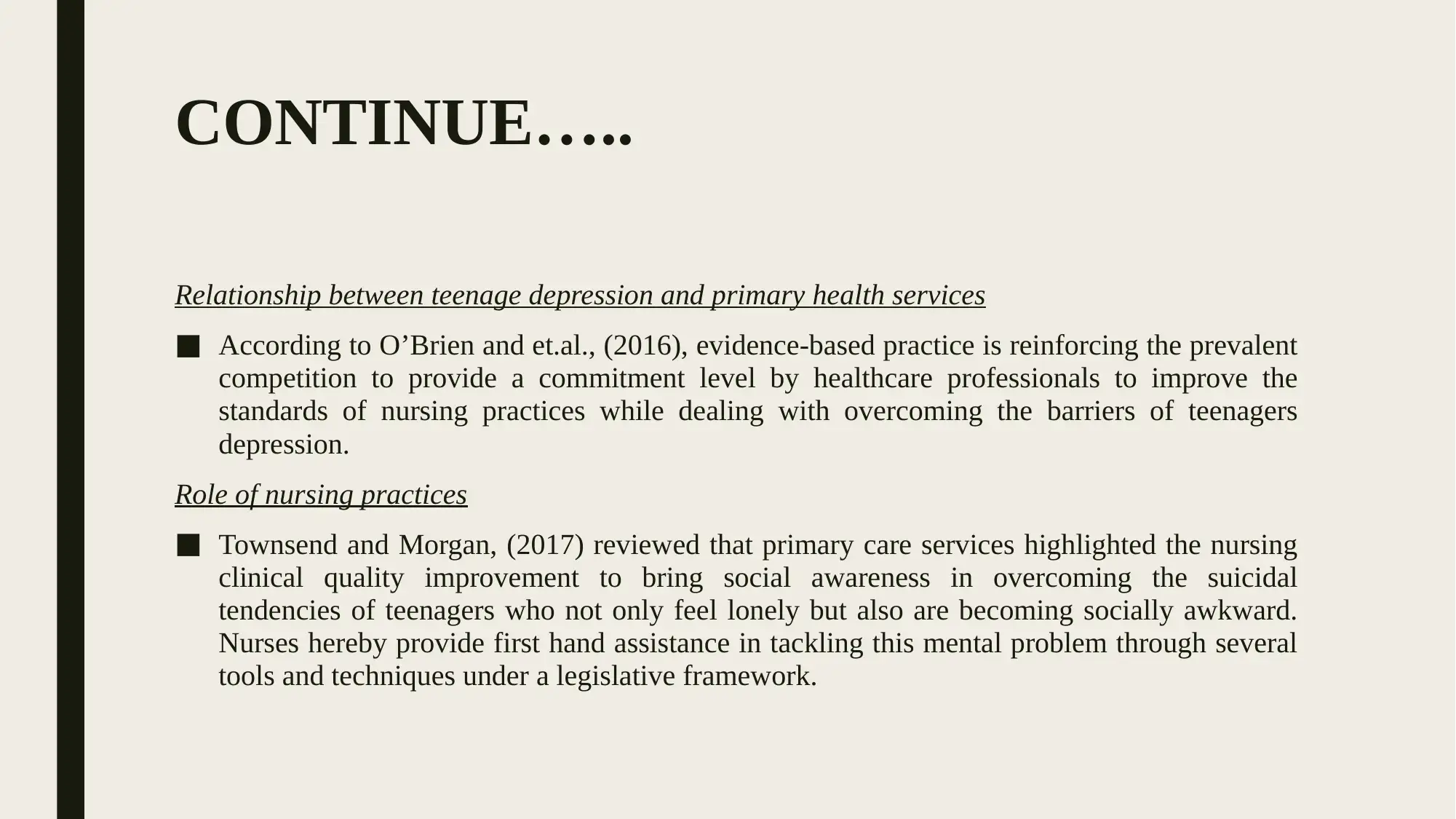
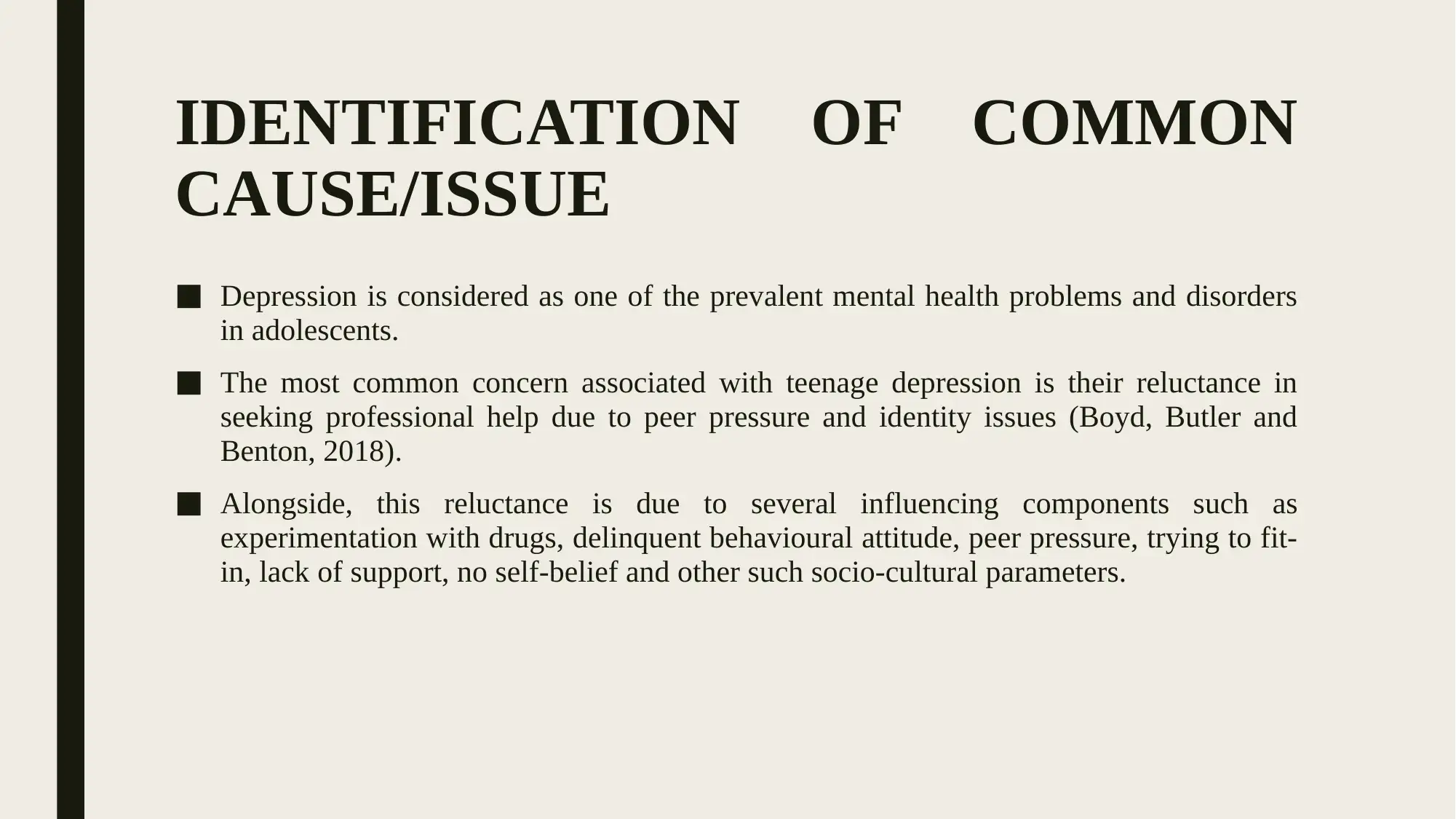
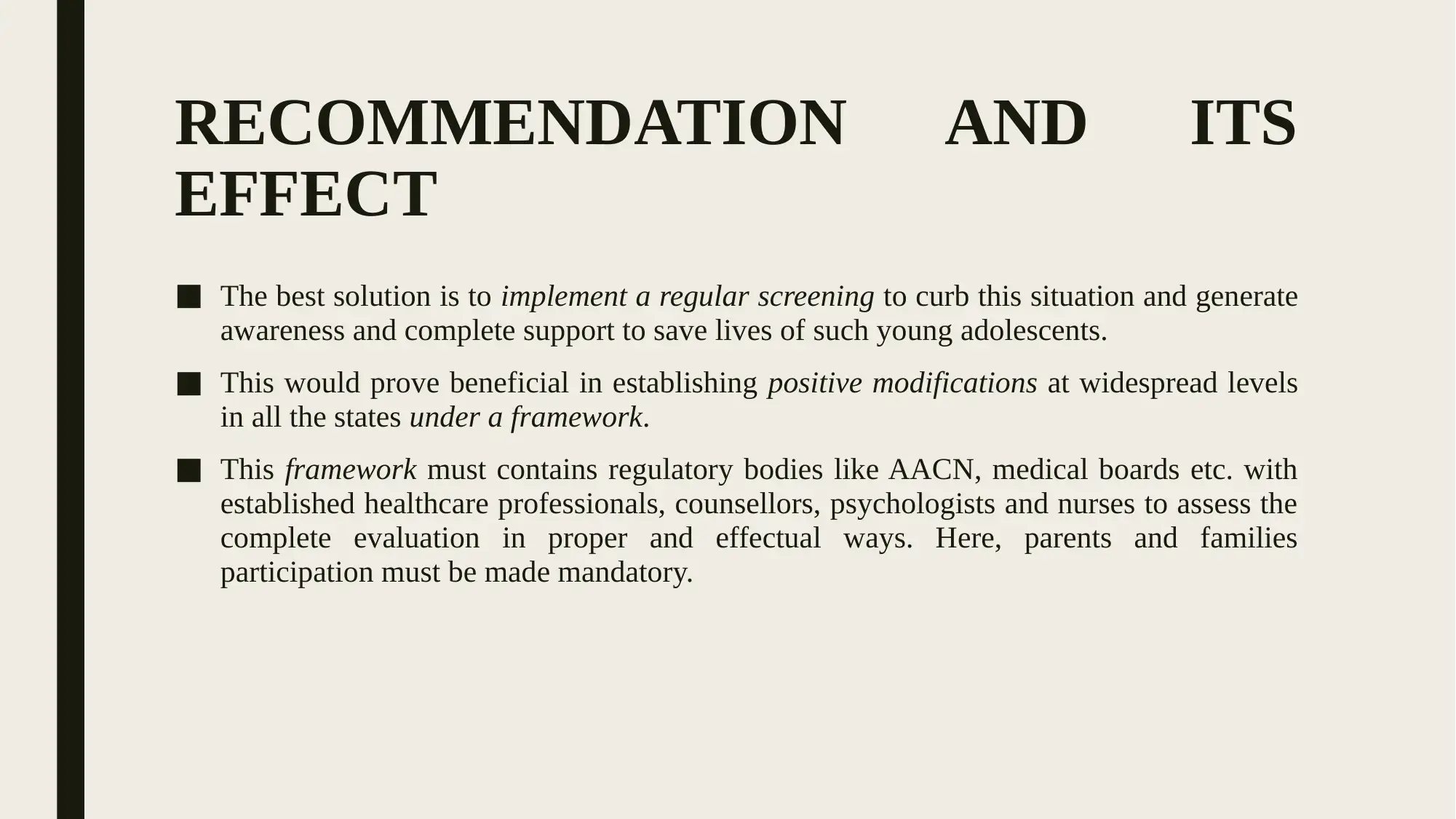
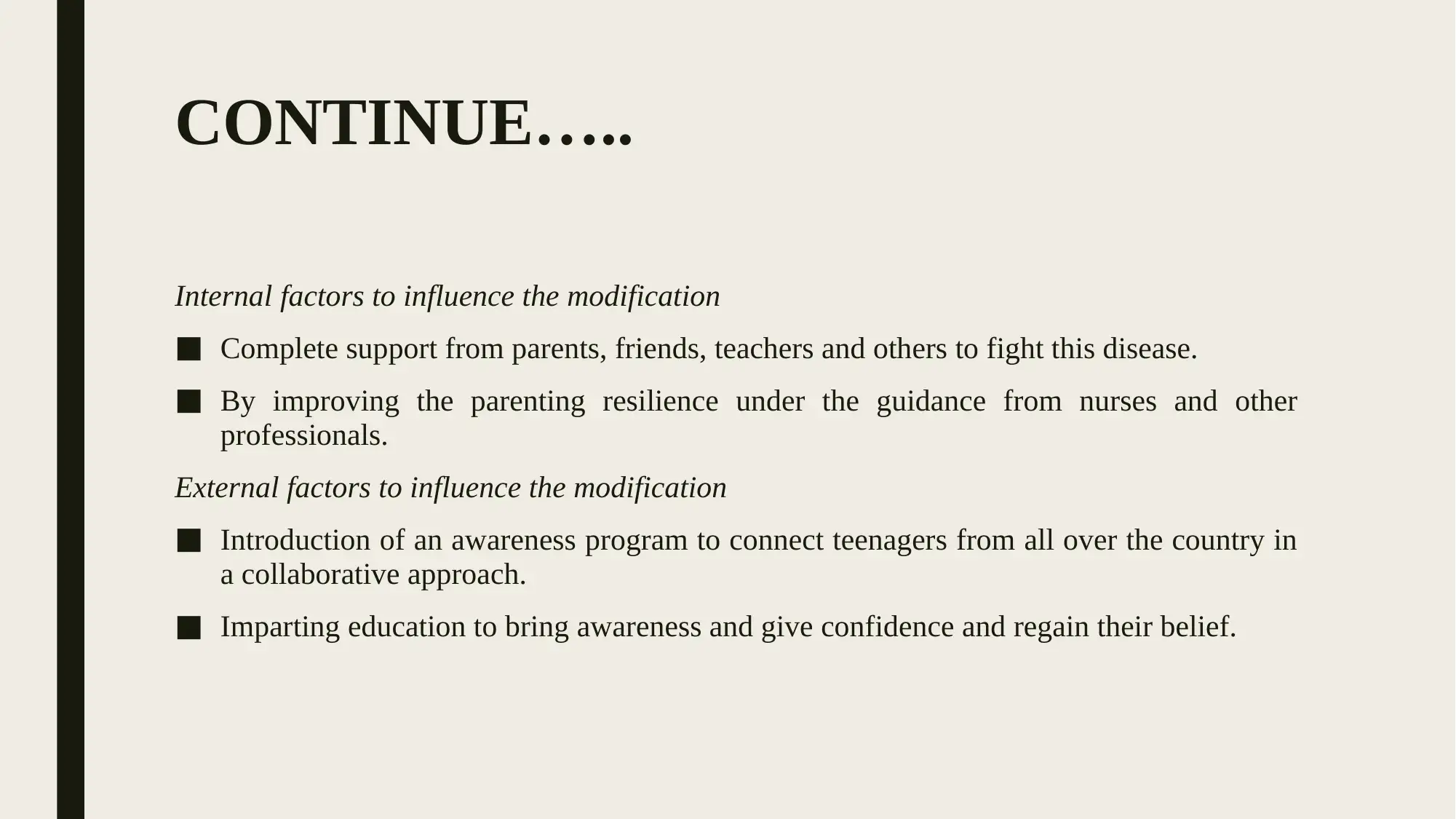






![[object Object]](/_next/static/media/star-bottom.7253800d.svg)